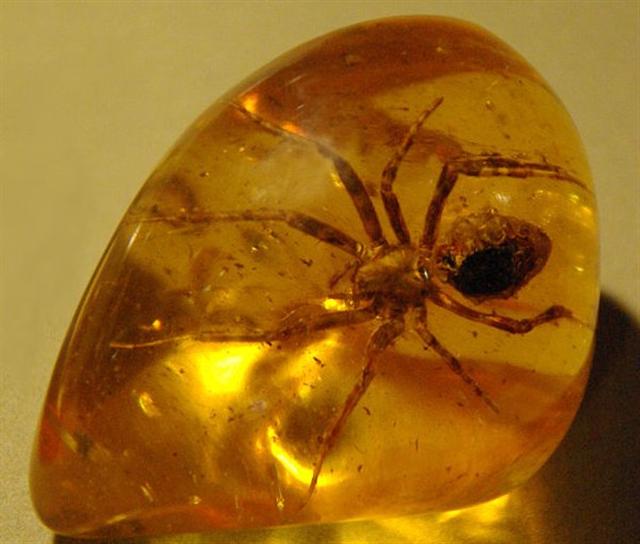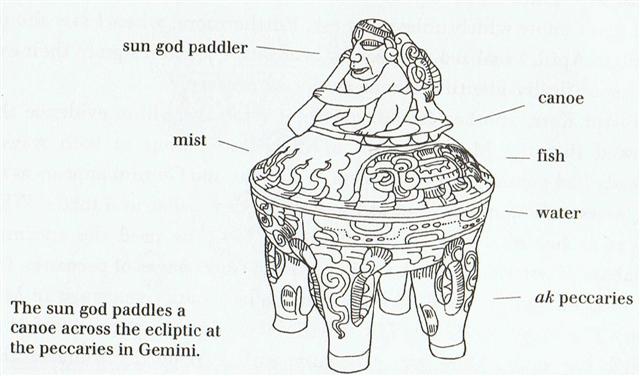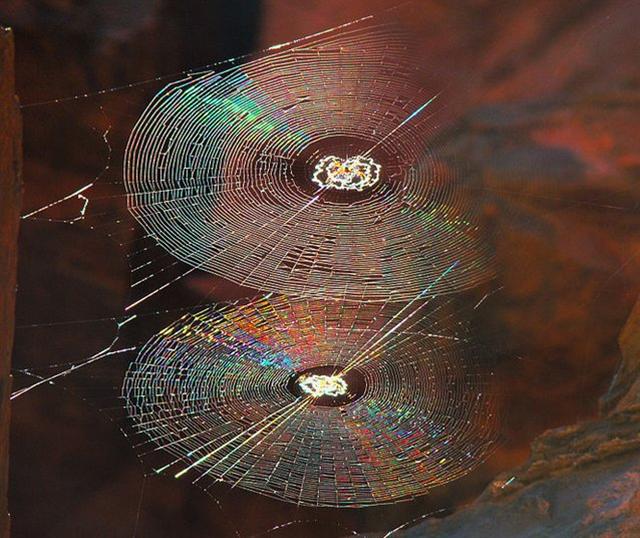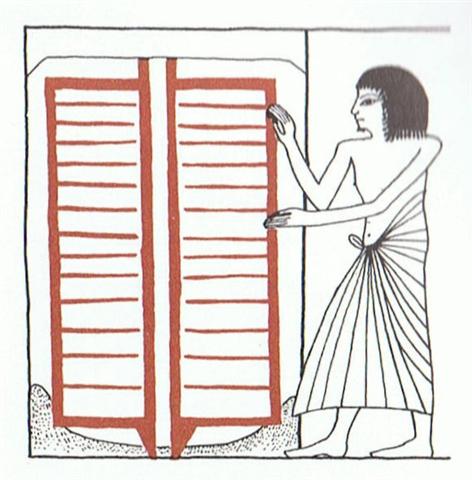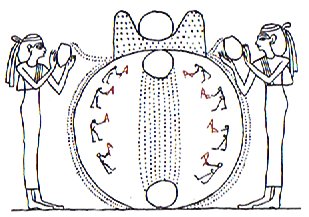1. Why should we begin reading on side a of the tablet and not on side b? A simple answer is that Metoro began to read on side a. A complementary argument is that Metoro began to read the text on side b backwards. When the clock dials are moving withershins it cannot be daytime. On the other hand, south of the equator on Easter Island the Sun was rising in the east and moving towards the horizon in the west as usual - but this was perceived as going from the right to the left hand (when looking north towards the equator, the Road of the Spider).
... Hotu called out [he rangi] to the canoe of the queen [te aríki tamahahine]: 'Steer the canoe to the left side [a te rara maúi] when you sail in. Teke will jump over on board (your) canoe to work his mana [hakamanamana] when you sail [mo oho.atu] through the fishing grounds [i te hakanononga]!' [I will go (koau ma oho) to the right (a te rara mata'u), working mana (mo hakamanamana) when going through the fishing grounds (mo oho atu i te hakanononga).] Teke jumped on board the second [he teki.a Teke.ki runga ki te rua] canoe, (that) of the queen. The king's canoe [te miro o te ariki. tamaaroa] sailed to the right, the queen's [to te ariki. tamahahine] to the left ... [E:78] Thus it is complicated, which possibly could explain why Metoro read the beginning of the text on side b in a strange fashion. Page 78 in Manuscript E suggests the arrival of the Sun coincided with Rigel (*78) and the beginning of the Rigel year.
... In view of the almost universal prevalence of the Pleiades year throughout the Polynesian area it is surprising to find that in the South Island and certain parts of the North Island of New Zealand and in the neighboring Chatham Islands, the year began with the new Moon after the yearly morning rising, not of the Pleiades, but of the star Rigel [*78] in Orion ... In contrast, the beginning of the text on side a could possibly be the beginning of the Pleiades year. If this was intended to be so, then page E:56 (→ *56 at Alcyone) in Manuscript E should be studied together with glyph line Ea1. ... Hotu's time came [he tuu ki te tau i a Hotu], and Matua spoke to Hotu, 'Put the canoe (miro) into the water and sail to Te Pito O Te Kainga. For five months Ira has been searching for the land. Ira went away and did not return [hoki mai nei a Ira].' Then Matua said to Hotu, 'Launch the canoe [ka hoa te miro], gather [ka too toou] the people, and sail on board the canoe [ka oho.irunga i te miro] to Te Pito O Te Kainga. Sail on [ka oho] and let children be born [ka hakatama toou] by the many in Te Pito O Te Kainga (i.e., the number of your subjects will increase in the new homeland). Not one thing [he mee. o toe a etahi] shall remain behind (i.e., everything that is needed will be taken along) when you leave [ana oho koe]!' ... [E:56] *56 = day 80 + 56 = 136 (May 16). According to Metoro the first glyph on side a implies hakamata, which I for the moment interpret as creating (haka) holes (mata) to count from (hia) - in the Spider's net. Mata. 1. Tribe, people; te mata tûai-era-á, the ancient tribes. 2. Eye; mata ite, eyewitness. 3. Mesh: mata kupega. 4. Raw, uncooked, unripe, green, matamata, half-cooked, half-ripe. Kahi matamata, a tuna fish. Vanaga. 1. The eye; mata neranera, mata kevakeva, mata mamae, to be drowsy; mata keva, mataraparapa, matapo, blind; mata hakahira, squint eyed; mata pagaha, eye strain. 2. Face, expression, aspect, figure, mien, presence, visage, view; mata mine, mata hakataha, mata pupura, mata hakahiro, to consider. 3. Raw, green, unripe. 4. Drop of water. 5. Mesh; hakamata, to make a net. 6. Cutting, flint. 7. Point, spear, spike (a fish bone). 8. Chancre. Matamata, sound of water. Churchill. There is a wide range of significations in this stem. It will serve to express an opening as small as the mesh of a net or as large as a door of a house; it will serve to designate globular objects as large as the eye or as small as the bud on a twig or the drop of rain, and designating a pointed object it answers with equal facility for the sharpened tip of a lance or the acres of a headland; it describes as well the edge of a paddle or the source from which a thing originates. Churchill 2. Matá. Black obsidian spear points, all belonging to the Late Period which began ca 1680. Heyerdahl 3.
The 5th glyph (kua mau ki te hukiga) is different in kind compared to the first 4 (ha): 4 + 360 = 364 = 13 * 28 = 4 * 91. 4 + 350 = 354 = 12 * 29½ = 4 * 88½.
|
||||||||||||||||||||||||||||||||
